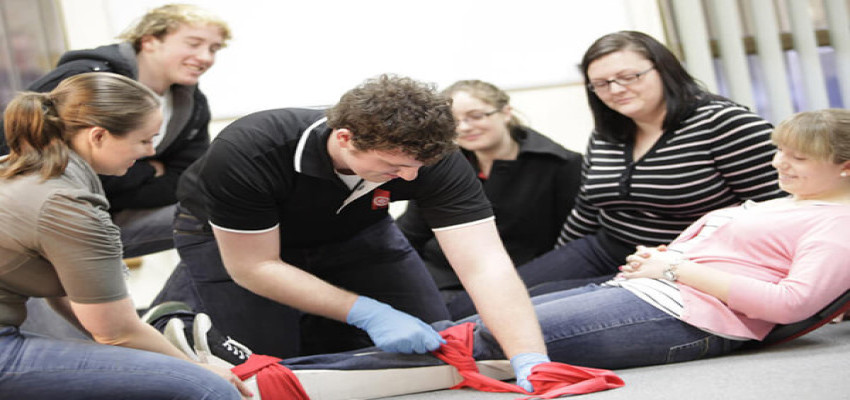
Productive Training Ideas for the Hospitality Industry
The hospitality industry is one of the fastest-growing sectors in the world. It has also proven its resilience as it bounces back after Covid 19. Even in the face of a global pandemic, with the rise of newer variants, the market is expected to reach $5297.78 billion in 2025 at a CAGR of 6%, according to the Hospitality Global Market Report 2021. In the UAE, Dubai airport is also anticipating another busy period with passenger numbers expected to hit over 1 million, translating to high hotel demands. This has experts in the tourism industry optimistic about a continued recovery for the hospitality sector.
However, it does have its share of unique problems as well. An unexpected effect occurred with lockdown measures hitting all industries during 2020 and 2021. Employees were forced to slow down and, in the process, figured out how overworked and undervalued they felt. Enter- The Great Resignation! According to a McKinsey report, 47% of the hospitality workforce is resigning or will have left in the next six months. This questions the methods with which industry leaders have been managing their workforce so far. And brings to light another question- How can strong coaching, mentoring, training, and upskilling help bring about change?
Let’s first take a look at why training is essential in the hospitality industry:
1. Robust Training + Remarkable Service = Returns on Investment
The value of an effective training program can be seen in how hospitality providers execute their services. A simple example of excellent service, which is a key performance indicator for most workers in the hospitality industry, is the use of stick words. These are words used to give a professional greeting, getting contact information immediately and correctly, using the guest’s name politely throughout the conversation, subliminal cues that leave the guests feeling valued. Studies show that using stick words increases the likelihood of securing a booking by 2.5 times! Excellent service will invariably get great returns.
2. Converting Attrition into Attraction
Employee satisfaction is key in how a worker performs their service. A recent worker survey showed that 94% of employees say they would stay at a company longer if it invested in their learning and development. The employee turnover rate in hospitality can be as high as 70-75% per year!
Robust training modules that offer value to the employee beyond their role in the organisation make them feel like the company is interested in their personal growth. It’s a great way to instill loyalty in the long run.
Types of Training in the Hospitality Industry
In hospitality, there is a wide range of training methods that have proven to be successful. These include:
- Orientation and Onboarding training is required for all employees to understand the company’s vision, mission, and brand values.
- Technical skills training is required for specialist roles.
- Product/service training, needed for employees to be highly familiar with the services or products they are providing
- Compliance training, needed by local authorities like workplace safety and sexual harassment training
Once these traditional and basic training models are executed well, here are 5 ways the hospitality industry can update its training programs for the future.
1. Franchisee Training
The opportunities in building franchises are tremendous. This business model encourages companies to sell the rights to their business to owners and operators who, for a cost, operate their business using the company’s brand. High performing employees often show great promise in running franchises for the hospitality industry. Giving the right employees the proper knowledge and tools to succeed through robust training is a win-win situation for both!
2. Soft Skills Training
Soft skills training is an underrated but essential investment for service roles in hospitality for any organisation. A happy customer keeps coming back for more, which is excellent for business. But soft skills also have a critical place in managerial training. Leaders who are adept at soft skills can manage their teams with empathy, leading to employee satisfaction and retention. After all, it is often said that people leave bad bosses, not bad jobs!
3. Managerial and Leadership Training
Employees who are invited for managerial and leadership training feel valued and appreciated. They have confidence in the organisation and their continued career path with them. Other employees witnessing the possibilities that may open up for them are then motivated to work harder and train better to get the same opportunity.
4. Personal Safety and Mental Health Training
COVID-19 also brought an increased need for personal safety and hygiene training, especially to those at the customer-facing side of service delivery in the hospitality industry. The World Health Organization published extensive guidelines to help organisations train their employees in food preparation and services and other roles to limit the spread of the virus. The pandemic also had another nasty by-product as it ran rampant – its effect on mental health. Employees in hospitality and tourism faced job uncertainty, unemployment, and fear for their safety. Organisations that paid attention to these unique needs and tried to deliver educational sessions on physical and mental health won the hearts of their employees as they felt that they were being looked after.
5. Use of E-Learning Platforms
The technology boom affected how training is delivered to employees, and the hospitality industry was no exception. Organisations are investing in e-Learning platforms to enhance their workers’ performance while decreasing the cost of in-person training. With the spread of COVID-19 over the last few years, online training has become the safest option. With the use of entirely customizable platforms, organisations can deliver interactive modules that employees can access from the comfort of their own homes. There are options for testing, practical tools and gamified courses that make learning fun. The added advantage of getting an immersive training experience that engages their employees is just the proverbial cherry on top!
The past 18 months have offered some great learning lessons. Employees in the hospitality industry crave the investment their companies make in the human aspects of work. They prefer if their organisations and managers value their efforts with meaningful interactions, not just transactions. This means that companies in hospitality who choose to invest in their employees’ growth through upskilling and training have the most to gain. After all, loyal workers give the best return on investment!


